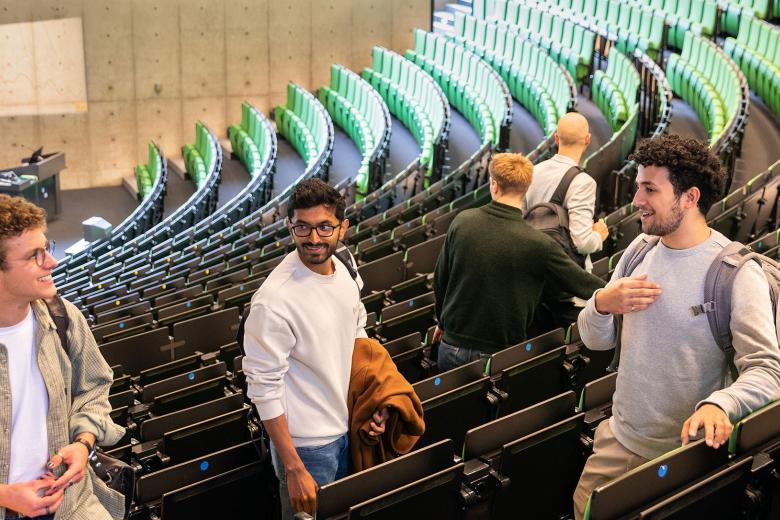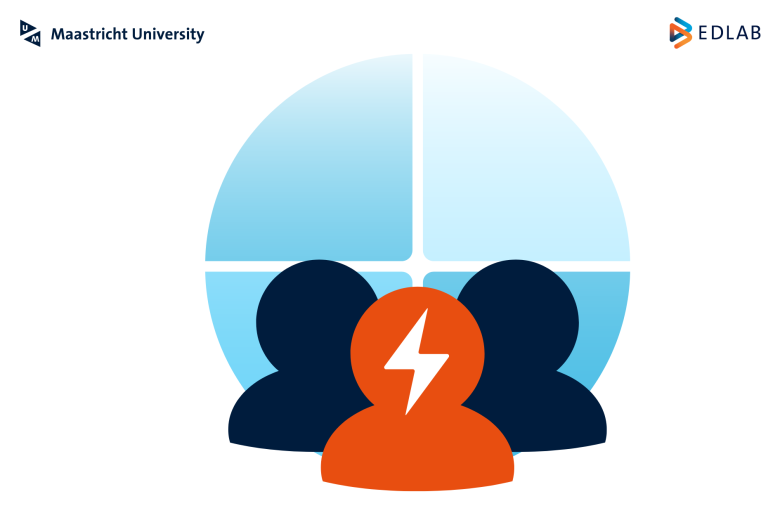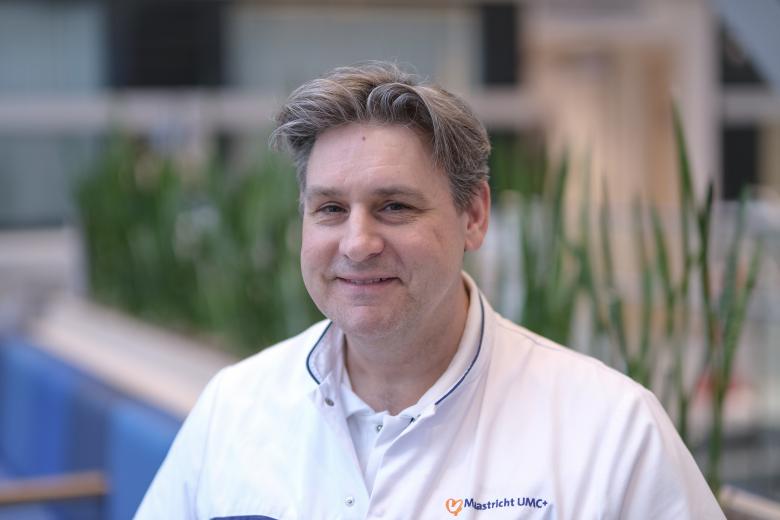Ron van Golde collaborates with researchers to improve IVF care.
Critical discussion about EdTech and AI at UM
This session aims to start or continue a critical dialogue about current AI and EdTech developments here at UM. Everyone is welcome to participate!

Workshop: Building trust and safety in the classroom
- staff training
This interactive workshop explores the link between psychological safety and high-performance standards, drawing on Amy Edmondson’s research and your own real-life experiences.

Workshop: Interpersonal power dynamics in the classroom
- staff training
Classroom interactions are shaped by subtle power dynamics – between students, and between students and their lecturers or tutors. Understanding these dynamics is key to effective classroom management.

SHE welcomes Dr. Liesbeth Baartman
We're excited to announce that dr. Liesbeth Baartman will join the School of Health Professions Education.

Available Rotors
The available rotors in the UCL are listed in the table below. Use the online registration system, AgendaLabs FHML, to reserve a rotor and the corresponding centrifuge.
| Rotor Type | Capacity (ml) | angle | max g | Compatible Centrifuges |
|---|---|---|---|---|
| 45 Ti | 6x94 | fixed | 235.000 | Ultra 1/2 |
| 70 Ti | 8x39 | fixed | 450.000 | Ultra 1/2 |
| 70.1Ti | 12x14 | fixed | 450.000 | Ultra 1/2 |
| 90 Ti | 8x14 | fixed | 694.000 | Ultra 1/2 |
| JA-20 | 8 x 50 | fixed | 48.400 | High 1/2/3 |
| JA-21 | 18x10 | fixed | 50.400 | High 1/2/3 |
| JA-25.15 | 24x15 | fixed | 74.200 | High 1/2/3 |
| JA-25.50 | 8x50 | fixed | 75.600 | High 1/2/3 |
| JA-25.50 | 8x50 | fixed | 75.600 | High 1/2/3 |
| JLA-8.1 | 6x1000 | fixed | 15.970 | High 1/2/3 |
| JLA-16.250 | 6x250 | fixed | 38.400 | High 1/2/3 |
| MLA-150 | 6x4 | fixed | 1.003.000 | Ultra 3 Small |
| TLA-110 | 8x5.1 | fixed | 657.000 | Ultra 3 Small |
| SW 32 Ti | 6x38 | swing | 175.000 | Ultra 1/2 |
| SW 41 Ti | 6x13 | swing | 288.000 | Ultra 1/2 |
| SW 41 Ti | 6x13 | swing | 288.000 | Ultra 1/2 |
Processing Glassware
At the CGSA, all collected glassware is machine-washed and disinfected at a temperature of 70 °C.
The cleaning process removes visible or adhered dirt as well as invisible organic material. This step is crucial to prevent microorganisms from surviving, multiplying, and spreading further.
Disinfection is performed thermally, meaning microorganisms are killed or inactivated through heat. This reduces the number of microorganisms to an acceptable level, ensuring a consistently safe and disinfected final product.
Sterilisation Methods
At the CGSA, glassware, instruments, and liquids can be sterilised in different ways, depending on the needs of the researcher:
- Autoclaving
- 121 °C: Suitable for glassware/bottles, some plastics, or instruments
- 134 °C: Suitable for incubator plates and instruments
- Dry Sterilisation
- 180 °C: Suitable for glassware
- Low-Temperature Plasma Sterilisation
- 45-60 °C (H2O2): Suitable for "thermolabile" materials that cannot withstand high pressure or temperature
- Sterilisation of Contaminated Materials
Contaminated materials such as incubator plates or contaminated liquids can be delivered separately to ensure all contamination is safely destroyed.
Unsure about the most suitable method? Feel free to ask one of our staff members for advice. All our staff are specialised and trained in disinfection and sterilisation procedures
Distilled Water
All FHML staff can also access various quality levels of distilled water at the CGSD:
- RIOS Water
This water is filtered and deionised through a reverse osmosis system. It is suitable for general laboratory applications, such as preparing buffers, cleaning glassware, and autoclaving.- Inorganics: up to 18.2 MΩ-cm
- TOC (Typical): <10ppb
- Bacteria (Typical): <5CFU/ml
- Particles: 0.2µm filtration
- UltraPure Milli-Q
This water is of the highest purity and is produced through a combination of reverse osmosis, ion exchange, and UV treatment. It is suitable for analytical and molecular biological applications, such as PCR, HPLC, and cell culture, where maximum purity is required.
Sterilisation Lab Coats (ML-I/ML-II)
Laboratory coats from ML-I or ML-II laboratories can be submitted to the CGSA in a sealed autoclave bag. They are first sterilised in the autoclave and then sent to the laundry for cleaning.
